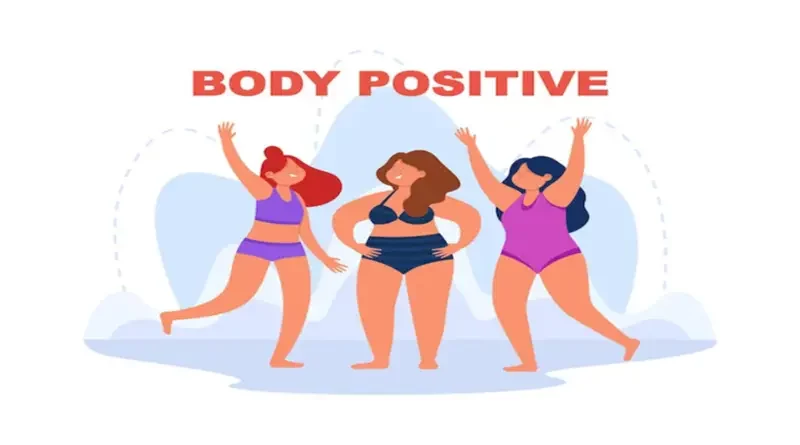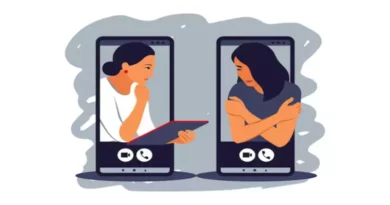How Can People Feel Positive About Their Body?
Body image refers to a person’s thoughts, feelings, and perceptions about their own body. It includes how a person sees themselves, how they feel about their physical appearance, and how they believe others perceive them. Body image can be influenced by a variety of factors, including cultural ideals of beauty, media representation of bodies, personal experiences, and relationships. A positive body image means feeling comfortable and confident in one’s own body, while a negative body image can lead to feelings of shame, embarrassment, or dissatisfaction with one’s appearance. It’s important to note that body image is not necessarily tied to a person’s actual physical appearance, but rather their perception of it.
Self-image refers to a person’s overall perception of themselves, including their personality traits, abilities, beliefs, and values. It is the mental picture a person holds of themselves, shaped by their experiences, interactions with others, and societal influences. A positive self-image means having a healthy and realistic view of oneself, with a sense of self-worth and self-esteem. A negative self-image, on the other hand, may involve feelings of inadequacy, self-doubt, or self-criticism. Developing a positive self-image involves building a strong sense of self-awareness and self-acceptance, and learning to appreciate one’s strengths and weaknesses. It can also involve challenging negative self-talk and limiting beliefs, and building a supportive network of people who encourage and uplift you.
Negative Self-Image and Self Esteem
A negative self-image and low self-esteem often go hand in hand. When a person has a negative self-image, they tend to have a low opinion of themselves and their abilities. This can lead to feelings of low self-worth and self-doubt, which in turn can lower their self-esteem.
Negative self-image and low self-esteem can develop due to a variety of reasons, including past experiences, negative feedback from others, societal pressures, or mental health issues such as depression or anxiety. It can also be influenced by factors such as physical appearance, academic or professional performance, and relationships.
Having a negative self-image and low self-esteem “best psychologist in India” can have significant impacts on a person’s mental health and well-being. It can lead to feelings of sadness, anxiety, and social isolation, and can make it difficult to cope with challenges and setbacks in life.
It’s important to address negative self-image and low self-esteem by seeking support from trusted friends or family members, or seeking professional help if necessary. Cognitive-Behavioral therapy (CBT) is a type of therapy that can be helpful in addressing negative self-image and low self-esteem by changing negative thought patterns and building self-confidence. Self-care practices such as exercise,couple counsellormindfulness, and self-compassion can also be helpful in improving self-image and self-esteem.
Feeling positive about one’s body is an essential aspect of cultivating self-love and overall well-being.
Here are some recommendations to help foster a positive body image:
- Practice self-compassion: Treat yourself with kindness and understanding. Acknowledge that nobody is perfect, and it’s natural to have flaws. Embrace your uniqueness and appreciate your body for everything it does for you.
- Focus on what your body can do: Shift your focus from appearance to function. Celebrate your body’s abilities, such as walking, dancing, or hugging, and be grateful for these capabilities.
- Surround yourself with positivity: Seek out friends and communities that uplift and support you. Limit your exposure to toxic environments and people who make you feel self-conscious about your body.
- Challenge negative thoughts: When negative thoughts about your body arise, question their validity and try to replace them with positive ones. For example, instead of focusing on a perceived flaw, think about a body part you feel good about.
- Set realistic expectations: Understand that the media often portrays unrealistic beauty standards. Remember that what you see in advertisements or on social media is often manipulated or edited to create a specific image.
- Take care of your body: Engaging in regular physical activity, eating a balanced diet, and getting adequate sleep can help you feel more positive about your body. When you treat your body well, you’re more likely to appreciate it.
- Dress for comfort and confidence: Wear clothes that make you feel good about yourself and that are comfortable. This can help you focus on how you feel in your body rather than how you think you look to others.
- Practice gratitude: Develop a daily gratitude practice, focusing on the aspects of your body you appreciate. This can help shift your mindset towards positivity.
- Seek professional help if needed: If negative body image is significantly impacting your life, consider seeking help from a mental health professional, such as a therapist or counselor, who specializes in body image issues.
Remember that cultivating a positive body image is a journey and may take time. Be patient with yourself and practice self-compassion as you work on building a healthier relationship with your body.



